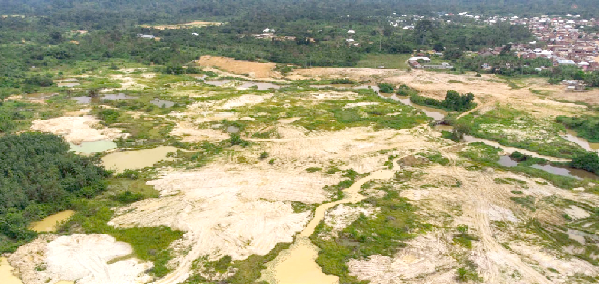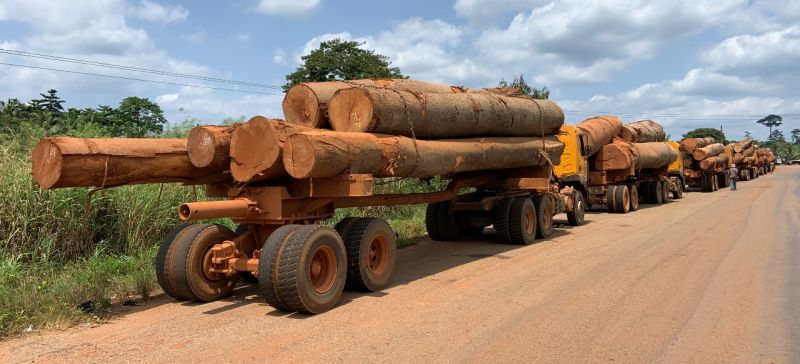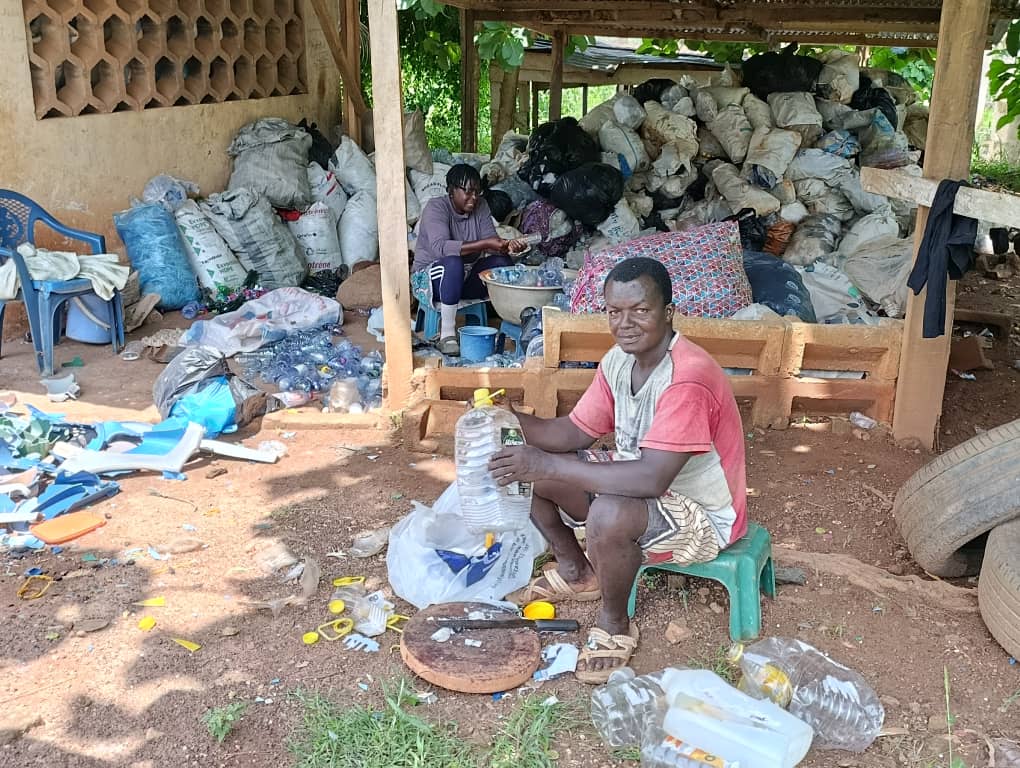Restoring God's Creation: A Diocesan Response to Environmental Degradation in Goaso
GOASO DIOCESAN DEVELOPMENT OFFICE (GODIDO)
Restoring God's Creation: A Diocesan Response to Environmental Degradation in Goaso
The Catholic Diocese of Goaso, located in the Ahafo Region and parts of the Ashanti Region of Ghana, is facing an environmental crisis rooted in illegal mining (galamsey), unchecked timber exploitation, and rampant plastic pollution. These activities have significantly disrupted local livelihoods, compromised the health of our people, and threatened the natural beauty and ecological balance of our region.
The Effects of Galamsey
Galamsey has wreaked havoc across several parts of the Diocese, with Kunsu, Mankranso, and their environs being particularly hard-hit. Once vibrant with cocoa farms and clean water bodies, these areas are now marked by polluted rivers, deep mining pits, and devastated lands. In some communities, contaminated water has led to health complications such as skin diseases and gastrointestinal problems, while fertile farmlands have been rendered unproductive, displacing families that rely heavily on agriculture.
Additionally, some of these galamsey-affected areas are now prone to seasonal flooding, a consequence of destroyed vegetation and altered drainage patterns, further endangering lives and property.

Timber Exploitation and Deforestation
The aggressive harvesting of timber has also left a trail of destruction in some areas of the Diocese especially in the Ayom Forest Reserve. Without proper reforestation programs in place, deforestation has led to soil erosion, loss of biodiversity, and rising temperatures. The disappearance of tree cover has made our communities more vulnerable to environmental shocks and reduced the availability of forest resources that many rural families depend on for daily living.

without proper permission and replacement
Plastic Pollution
The problem of plastic waste is evident in both urban and rural parts of the Diocese. Improper disposal of plastic waste clogs gutters, causes flooding, and creates breeding grounds for disease-carrying mosquitoes. Plastics are often burned in open spaces, releasing harmful toxins into the air and contributing to respiratory issues among the population.

waste in the region
Socio-Economic Consequences
These environmental issues are not only ecological in nature but also deeply socio-economic. The destruction of farmland and forests has led to increased poverty, school dropouts, and rural-urban migration. The cost of healthcare has risen as more residents suffer from pollution-related illnesses. Infrastructure in some towns, especially roads and boreholes, has deteriorated as a result of unchecked mining and logging activities. This has led to problems of water shortage and famine.
Diocesan Response
In response to this growing crisis, the Diocese of Goaso has taken several steps:
- Advocacy and Education: Parishes regularly preach about care for creation, drawing on Pope Francis' Laudato Si’. Diocesan leaders have openly condemned galamsey and refused donations or sponsorships from individuals or groups involved in such activities.
- Tree Planting Initiatives: In collaboration with local schools, youth groups, and religious congregations, thousands of trees have been planted as part of reforestation efforts.
- Community Clean-Up Campaigns: Parishes organize periodic clean-ups to reduce plastic pollution, especially around church premises and public spaces.
- Engagement with Traditional and Political Leaders: The Diocese works with local chiefs and government officials to advocate for stronger enforcement of environmental laws and to raise awareness of the long-term consequences of environmental degradation.
- Pastoral and Social Support: The Diocese provides spiritual and material support to affected families, especially in towns where farmlands and water sources have been destroyed.
The Way Forward: A Call for Partnership and Support
While the Diocese has taken bold steps, it cannot do this alone. Several towns within the Diocese have been devastated and now lack access to basic social amenities such as clean water, schools, and health facilities. In light of this, we appeal to all stakeholders:
- Government and Municipal Assemblies: To invest in rehabilitating affected communities and to enforce existing environmental protection laws.
- NGOs and International Partners: To support with resources for provision of social amenities, reforestation, health outreach, and alternative livelihoods.
- Parishes and the Faithful: To remain vigilant and active in protecting the environment.
- The Youth: To take up the mantle of environmental stewardship through education and action.
How You Can Help
We invite you to partner with the Diocese in our efforts to restore and protect our environment.
CATHOLIC DIOCESE OF GOASO
BANK DETAILS
1. Name of Bank: Ecobank Ghana Ltd.
Address of Bank: Ecobank Ghana PLC
2nd Morocco Lane
Off Independence Avenue
Accra – Ghana
Diocesan Account Name: Catholic Diocese of Goaso
Dollar Account Number 1: 2441002071124
Dollar Account Number 2: 3441002071130
Euro Account Number 2441002071125
Cedi Account Number: 3094438296701
Branch of Bank: Kenyase
For more enquiries kindly contact :
The Financial Administrator:
V. Rev. Fr. Stephen Gyau, Box 28, Goaso.
Tel: Mobile 0243653603, E – mail:
Director of Diocesan Development Office:
V. Rev. Fr. Nicholas Afriyie
Box 28, Goaso.
Tel: +233 24 4081670
Director of Diocesan Health Service:
Mr. Michael Ayimbire Ayamga
Box 28, Goaso.
Tel: +233 248234278 E-mail:
Together, we can rebuild what has been lost, restore our natural environment, and preserve God’s creation for future generations.

